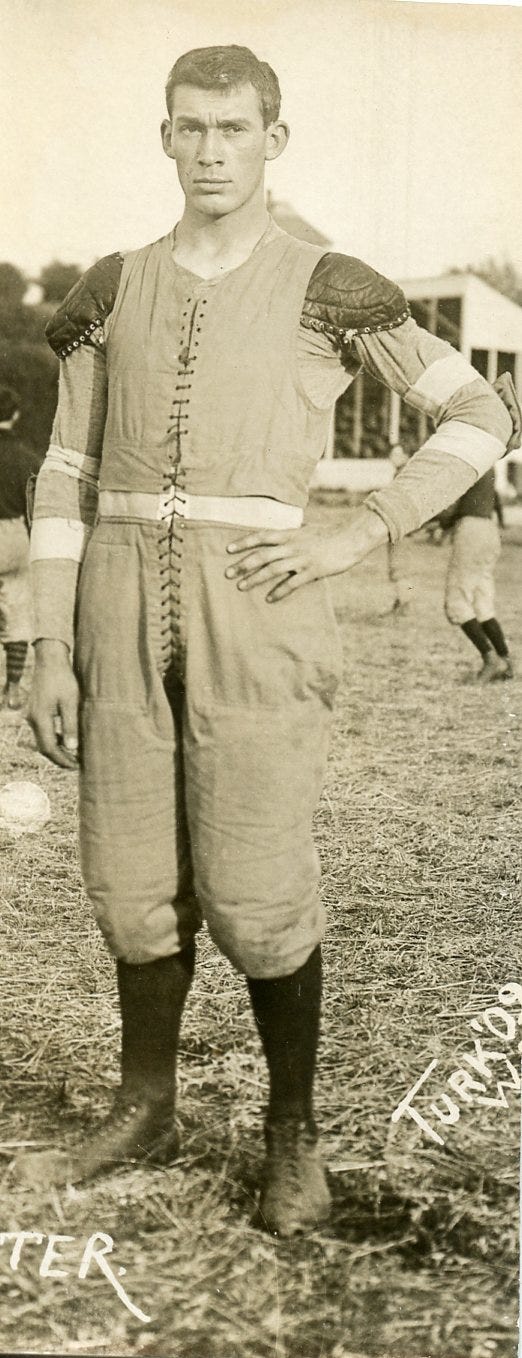December 16, 1917: Camp Lewis Rose Bowl Preview
As we approach the 104th Rose Bowl game on January 1, 2018, let’s look back at the events leading up to the 4th Rose Bowl game in 1918.
Frederick “Jumbo” Hunter, at 31 years of age, was the oldest man to appear in a Rose Bowl game. Hunter played for Washington State from 1908 to 1910; the picture from his college days shows he played the game when football uniforms still laced up the front.
The Los Angeles Times profiled Hunter and his teammates one hundred years ago today as the Camp Lewis team prepared to meet the Marine Island Marines in the 1918 Rose Bowl. As the article tells us, Camp Lewis had two linemen tipping the scales at over two hundred pounds and their starting backfield included 156-pound Roy Sharp of California, 148-pound Doug McKay of North Dakota, 149-pound Dick Romney of Utah State, and the massive 190-pound Harry Craig of Wyoming.
But Hunter and his teammates almost missed the chance to play in the Rose Bowl. Just before Thanksgiving 1917, the Tournament of Roses Football Committee invited the team from the United States Army Ambulance Service (USAAS) of Pennsylvania to represent the East in the 1918 Rose Bowl. However, the War Department refused to grant USAAS permission to travel across the country for the game, so USAAS declined the invitation, and the boys from Camp Lewis of Tacoma, Washington received the invitation instead.
Camp Lewis’ opponent in the 1918 Rose Bowl was the Mare Island Marines from the San Francisco area. Mare Island earned its invitation by proving themselves the best team west of the Rockies during the 1917 season; their record included a midseason 13-0 victory over Camp Lewis.
Camp Lewis was the largest Army training camp of the war with more than 60,000 men passing through its gates. Its size meant there were plenty of candidates for the football team, but its size presented problems as well. Each regiment and their supporting artillery, supply, medical and other units had separate schedules, making it difficult to coordinate football practice for the players spread across the many units. The camp commander addressed that problem on December 12 when he ordered all members of the Camp Lewis football team relieved of their daily military duties so they could concentrate on the upcoming Rose Bowl game.
The ability to consistently practice together gave the Camp Lewis team hope they could beat the Mare Islanders in the second meeting of the teams. We’ll report on how they fared in the game two weeks from now.
Click here for options on how to support this site beyond a free subscription.


